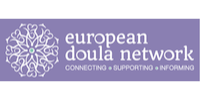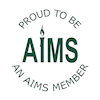Book Review by Trudi Dawson The AIMS Guide to Safety In Childbirth by Gemma McKenzie, Emma Ashworth, Shane Ridley and Virginia Hatton is available from AIMS and costs £8. I have been a doula for 15 years now, initially training with Nurturing Birth back in 2007. I read ALL the birthy books I could get…
Doula books
Nurturing Birth Book Review: Supporting Breastfeeding Past the First Six Months and Beyond
Book review by Lesley-Sheena Robbins “Supporting Breastfeeding Past the First Six Months and Beyond”, by Emma Pickett, is available from Jessica Kingsley Publishers for £24.99 In her book, Emma Pickett skilfully evokes honest reflection and knowledge into the personal journey of natural term breastfeeding. She aptly relates evidence-based sources and draws upon stories from breastfeeding…
Essential Summer Reads for Doulas
With the summer coming up, it’s great time to indulge in a little educational reading! We asked the Nurturing Birth doula community for their recommendations – here’s just a few of our must-reads Offering nurturing and loving care to mums throughout pregnancy, birth and after will always be at the top of our list, but…






